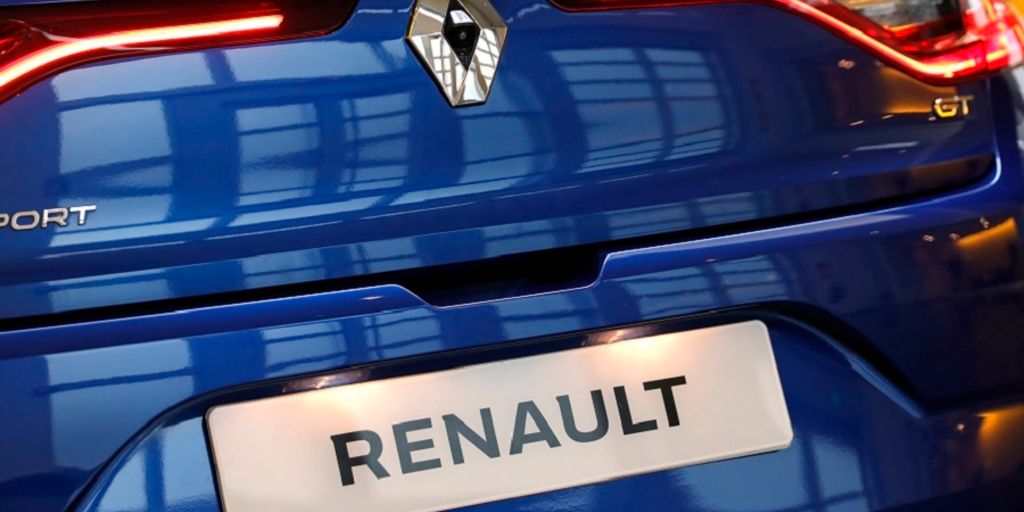
Two years ago, French authorities accused Renault of violating emissions laws. Investigators said the carmaker cheated on regulatory tests using defeat devices. The Renault emissions scandal involves vehicles manufactured between the years 2009 to 2011 and 2013 to 2017.
According to authorities, the carmaker allegedly released a product that could put animals and humans in danger. The discrepancies discovered between lab test emissions and actual road driving emissions were at around 377{e806b54bb4ff99dc7a5db5dc199b38c278ffaf40133f2d4749ec38b6ca08e487}.
As a result, the French carmaker had to pay a bail of $24 million or around £19.42 million. Authorities also asked Renault for a bank guarantee of around €60 million (or approximately £53 million). The guarantee money was for compensation, fines, and potential damages.
Renault denied the accusations and firmly said that their vehicles adhered to emissions standards and that they have always followed European and French regulations.
Since they allegedly did not use defeat devices to manipulate emissions, Renault is confident that they have not inadvertently deceived their customers and the authorities. Their engineering head, Gilles Le Borgne, said their case cannot be compared with that of the Volkswagen Group because they never used cheat software. Therefore, the allegations against the carmaker are wrong.
Le Borgne also revealed that NOx trap, a technology for anti-pollution that vehicles had at that time, carried specific limitations. The technology delivered optimum performance only when speed is low. Customers’ safety depended on the said systems. NOx or nitrogen oxide is a dangerous gas that endangers the environment and human lives.
Aside from Renault, French authorities are also investigating Fiat Chrysler and the PSA Group and the Volkswagen Group. VW was the first carmaker to be implicated in the Dieselgate scandal.
The Dieselgate scandal: what happened?
The Volkswagen Group received a notice of violation from American authorities accusing them of installing defeat devices in Volkswagen and Audi diesel-powered vehicles in the US. Thousands of vehicles were affected. The devices are used to control emissions when a vehicle is in testing in the lab.
A defeat device automatically reacts and reduces emissions levels to within the legal limits once it detects the vehicle it’s installed in is being subjected to a regulatory test. Once this happens, the vehicle appears clean and safe, so regulators approve them for sale. However, the vehicle is only emissions-compliant when under testing conditions.
Once the vehicle is brought out of the lab and taken for driving on real roads, it starts to emit elevated levels of NOx. So, it’s not clean or safe; it is a pollutant. Nitrogen oxide is made up of dangerous gases, including nitrogen dioxide (NO2) and nitric oxide (NO).
NOx is also highly reactive and can form acid rain and smog, as well as ground-level ozone. This kind of ozone destroys the environment.
For some, getting exposed to NOx emissions will trigger depression, anxiety, and other mental health-related issues. For others, cognitive health weakens, and this can mean increasing one’s vulnerability to dementia, especially Alzheimer’s disease.
Serious health impacts also arise from exposure to NOx emissions:
- Vomiting
- Nausea
- Asthma
- Respiratory diseases or chronic obstructive pulmonary disease
- Asphyxiation
- Pulmonary oedema
- Laryngospasm
- Cancer
- Cardiovascular disease
- Premature death
The Volkswagen Group exposed affected drivers to the health impacts mentioned above. They also misled their customers into believing their products were emissions-compliant and safe for driving. Authorities asked the carmaker to recall all the affected vehicles and to pay fines, fees, and compensation to affected drivers.
Aside from VW and Renault, other carmakers implicated in the diesel emissions scandal include BMW, Vauxhall, and Nissan.
Why drivers like you are entitled to compensation
The deceit and the extensive list of health implications are the primary reasons why affected drivers should be compensated. There are other reasons as well:
- Renault’s use of the defeat device affected the performance quality of your vehicle
- Bringing Renault to court is the first step to helping the campaign against air pollution
- You deserve to be compensated for all the dangers and difficulties you were subjected to because of the defeat device
You can choose to bring your case to court as an individual petitioner or you can join a GLO or Group Litigation Order (similar to the Americans’ class-action lawsuit). Most emission claim cases have a no-win-no-fee guarantee so you won’t have to worry about your finances.
Filing a diesel claim is your right as a car owner. Authorities urge you to make this legal action a priority.
How do I know I am if I can file my diesel claim?
As mentioned earlier, only models manufactured in specific years are affected by defeat devices. You can check if your vehicle is affected and if you are qualified to file a diesel claim. Simply visit ClaimExperts.co.uk and get all the information that they have on compensation eligibility.
After verifying that you are qualified, work with an emissions expert so you can start your Renault emission claim right away.
